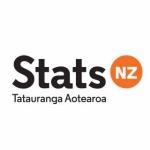Men and women spend time differently, survey shows
Men and women are working just as long as each other but the majority of men's work is paid and the majority of women's work is unpaid, Statistics New Zealand said today.
This information is included in the first release of data from the Time Use Survey 2009/10.
The survey collected data from two-day time use diaries to provide information on how New Zealanders aged 12 years and over spend their time. For example, it revealed how much time people spend sleeping, on childcare, working, watching television or video, eating, socialising, and on sports and hobbies.
“This time use survey provides information to help assess New Zealanders’ standard of living. It adds to knowledge from other survey types, such as economic change indicators, to provide a wider view of our country’s progress and the well-being of its people,” Social and Population statistician Paul Brown said.
Men and women spent 6 hours and 44 minutes each day in 2009/10 on paid and unpaid work activities (productive activities). Productive activity includes work for pay (and commuting to work) as well as household work, child care, purchasing goods and services, and other unpaid work.
“However, while 63 percent of men's work was paid, 65 percent of women's work was unpaid,” Mr. Brown said. Women spent 4 hours and 20 minutes daily doing unpaid work in 2009/10, less than their 4 hours and 36 minutes in 1998/99, in the first time use survey. Mr Brown said spending 13 minutes less on household work was a key factor. Men spent 2 hours and 32 minutes a day on unpaid productive activity in 2009/10.
“The only unpaid work activities where men spent more time than women were home maintenance and grounds maintenance.”
People aged 65 and over spent the most time on unpaid work, at 4 hours and 31 minutes a day. People aged 12 to 24 years spent 1 hour and 46 minutes on unpaid work activities, the lowest of all age groups.
Statistics NZ plans to release more information on the time-use data over the coming months.
Geoff Bascand 21 June 2011
Government Statistician
